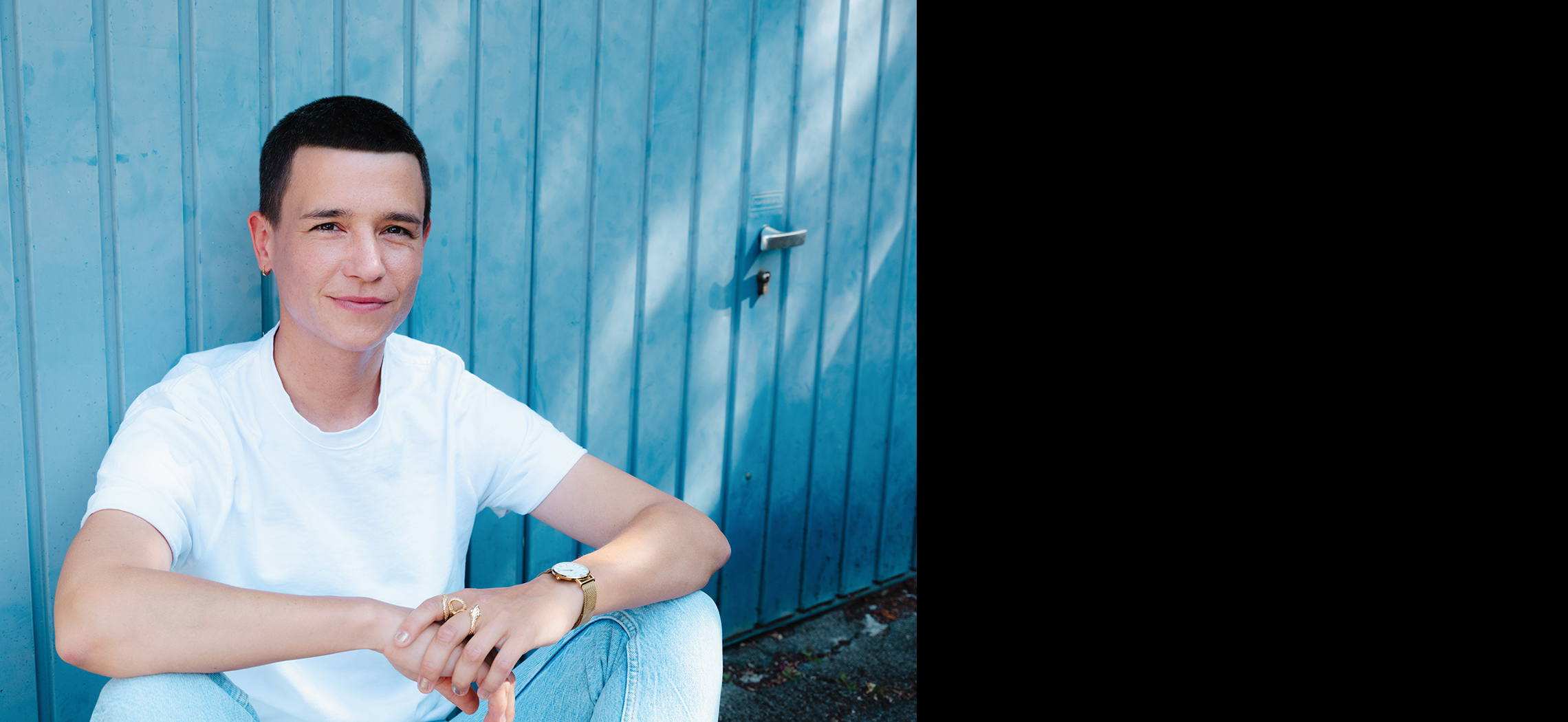A portrait of director Julia Fuhr Mann
Julia Fuhr Mann © Stella Deborah Traub“The fact that Julia Fuhr Mann is an exception in the German film industry can already be discerned from their email signature. In an industry that is notoriously characterised by long-established structures between universities, funding agencies and broadcasters, and in which a good measure of courtesy often gets you a long way, it is rare for someone to add “queer-feminist filmmaker” quite offensively to their name. “Sometimes, I do delete that before sending an email,” the Munich-based director says with a laugh when I bring this up. “For example, when I’m writing to a funding association in the provinces and I can’t judge what makes them tick. But I’m not really interested in hiding myself and my concerns.”
Besides, beyond self-descriptions or catchphrases, Fuhr Mann’s work speaks for itself. You only need to take a look at their film LIFE IS NOT A COMPETITION, BUT I’M WINNING, for example, with which they not only recently completed their documentary film studies at the University of Television and Film Munich, but also opened the Settimana Internazionale della Critica at the 2023 Venice Film Festival. It soon becomes obvious what themes and issues occupy them.
Incorporating a complex mix of documentary and fictional elements, resulting in a compelling hybrid of historical archive footage, real-life biographies and staged scenes, LIFE IS NOT A COMPETITION, BUT I’M WINNING, made with a predominantly female and queer team, focuses on the world of sport. “I love watching sport on TV, from football matches to tennis, or darts to the Olympics. Bodies compelled to go beyond their limits, huge emotions staged in a grand way – all those elements have fascinated me for a long time,” Fuhr Mann admits. “But I always get upset about everything behind it, whether it’s the restrictions and clichés relating to gender or the neoliberal, giant organisations that squeeze the whole thing into their structures.” As a result, the film is now devoted to the consequences that being non-male, non-white, non-heterosexual, or non-cisgender can have in sport.
Considering that such topics are far from anchored on the German cinema agenda, it was comparatively uncomplicated to get the project off the ground, Fuhr Mann reports. One broadcaster dropped out after lengthy talks, on the grounds that they were involved in another queer project already. But with the support of the FFF Bayern, this was resolved immediately thanks to a clear treatment and coherent concept. And a new broadcaster was finally found in 3sat: “I was really surprised because I had heard a lot beforehand about how difficult it can be to work with television editors. But our contact Katya Mader was totally open to everything, in terms of both form and content.“
Simply incorporating a bit of queer-feminist subject matter or corresponding characters into existing mainstream narratives and dramaturgies does not interest Fuhr Mann very much, in any case: “I always want to try to present a decidedly queer view. And for that, it’s important to break through existing structures and experiment with form.” But that doesn’t mean it’s not about reaching as large an audience as possible, too, as the director emphasises: “My work is not just aimed at a queer bubble, which is why I chose a subject like sport, which interests an incredible number of people. I try to make films that are not exclusively intellectual and experimental, but also dock onto pop culture and the mainstream. What concerns me can also be accessible to others, I have no doubts about that.”
Fuhr Mann’s successes to date indicates just how right they are. The short film RIOT NOT DIET has been screened at more than 60 film festivals worldwide (including Hot Docs) since 2018, and won several awards in the process. And LIFE IS NOT A COMPETITION, BUT I’M WINNING, which can look forward to its regular cinema release in Germany this winter, was not only part of the Locarno First Look programme but also received the British Pathé Archive Award and the ARRI Postproduction Award. No wonder, then, that Fuhr Mann has long been busy planning the next project: a revenge story they are currently working on will be another hybrid of documentary and feature film – and will, of course, adopt a queer-feminist perspective on the patriarchy.
Patrick Heidmann

